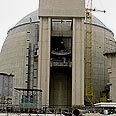
The 2005 Review Conference of the Parties to the Treaty on the Non-Proliferation of Nuclear Weapons ended on a rather faint note Friday in New York.
The hundreds of representatives from 153 countries who took part in the nearly month-long conference, which was aimed at reinforcing the treaty, were unsuccessful at drafting even one document of principles and recommendations that would be agreed upon by all.
Review Conference President-elect Sérgio de Queiroz Duarte of Brazil summed up the failure by stating that the gap between nuclear and non-nuclear countries is so wide there is almost no chance of agreeing on anything.
Precisely 10 years ago a similar conference granted the NPT unlimited validation, marking a major victory for non-proliferation supporters and the Clinton administration, which applied heavy diplomatic pressure to push the decision forward.
The NPT is hailed as the most important and successful national security-related treaty to date, but past achievements do not guarantee the future.
For some time now, statesmen and nuclear experts have claimed that the non-proliferation regime is in the midst of a deep crisis that may threaten the existing nuclear order.
'Shameful and frustrating'
Many are convinced the non-proliferation regime is in drastic need of major organizational changes, or else it may collapse entirely.
North Korea and Iran's nuclear programs, along with the global network of smuggling nuclear weapons-smuggling from Pakistan, which has sold nuclear know-how and technology both to Iran and to North Korea (and perhaps to other countries), demonstrate the basic inability of the international regime to implement its own norms, even when it comes to countries that signed the NPT.
Several non-nuclear countries, particularly from the southern hemisphere, have complained that nuclear countries, the U.S. in particular, are not upholding their treaty obligations, especially with regards to ending the nuclear arms race.
Israel's nuclear program is also part of the non-nuclear countries' complaint list. Israel, India and Pakistan are the only three countries that are regarded as de facto nuclear countries but have not signed the NPT.
Although they were not represented at the conference, these three countries' presence was definitely felt - as a problem and as a challenge.
The conference was shameful and frustrating, as unrealistic and short-term interests dominated the agenda.
The world, Israel included, should be concerned over the conference's failure, as only a strong and unified non-proliferation regime with moral and practical powers may be able to deal with the Iranian and North Korean threats.
Professor Avner Cohen, author of "Israel and the Bomb," is a senior researcher at Maryland University and adjunct professor at Haifa University















